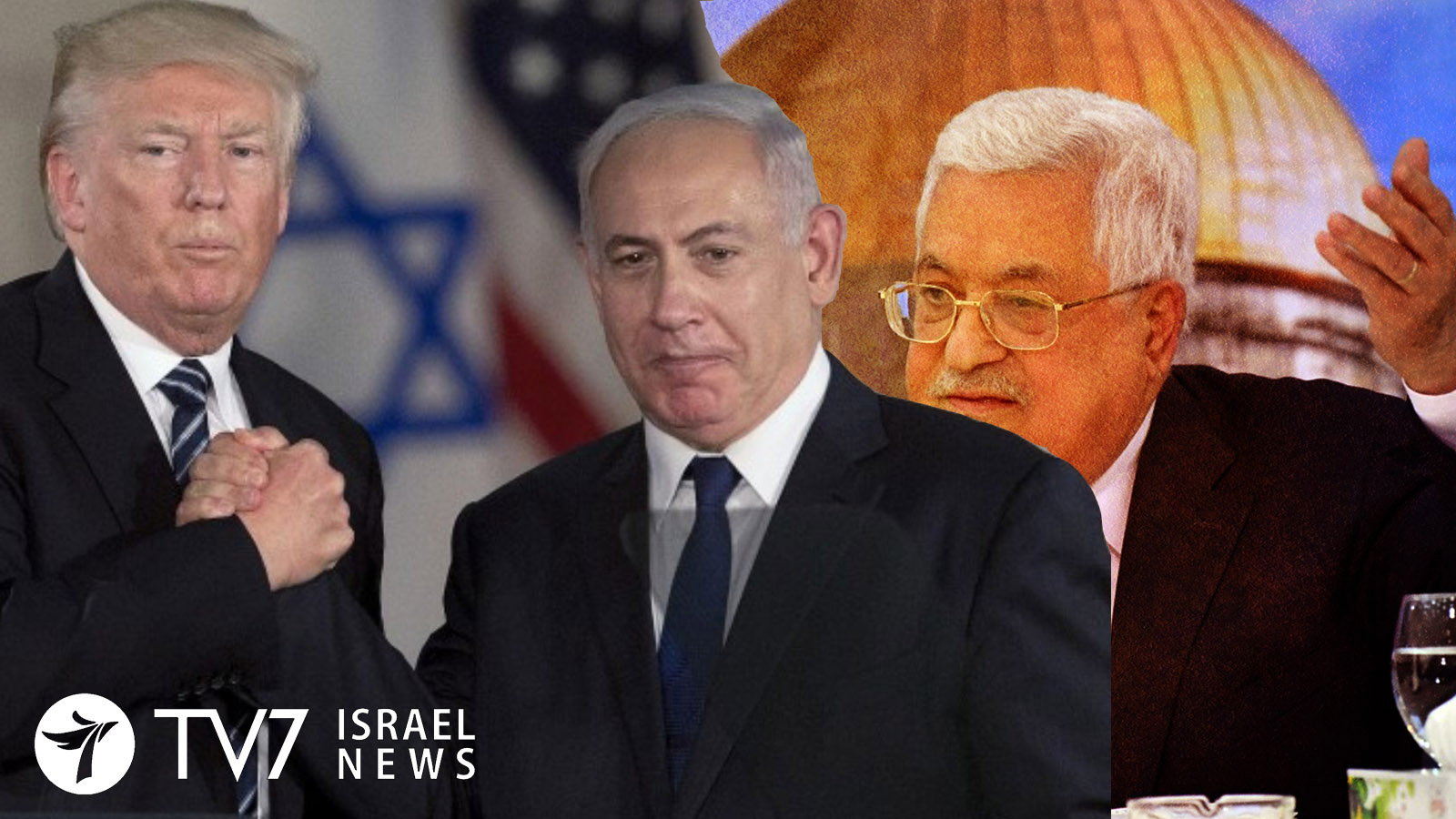The United States is expected to unveil its so-called “Deal of the Century” to the decades-old Israeli-Palestinian conflict within the next several days. Israeli political rivals Prime Minister Benjamin Netanyahu and Knesset Member Benny Gantz will attend talks at the White House next Tuesday with U.S. President Donald Trump.
Vice President Mike Pence made the announcement at the U.S. Embassy during his visit to Jerusalem, where he said that “President Trump asked me to extend an invitation to Prime Minister Netanyahu to come to the White House next week to discuss regional issues as well as the prospects of peace here in the Holy Land. At the Prime Minister’s suggestion, I also extended an invitation to Benny Gantz, the leader of the Blue and White party. He has accepted the invitation to join the prime minister with the president at the White House next week. And mister prime minister, I’m grateful that you accepted the invitation and we’re looking very much forward to welcome you to our nation’s capital to continue discussions about a broad range of issues, mutual concern between the United States and Israel but also about the prospect of peace.”
Netanyahu responded, “And now with this invitation I think that the president is seeking to give Israeli peace and security, the peace and security that it deserves so I gladly accept your invitation, his invitation to come to Washington and discuss with him his ideas on how to advance peace and to work closely with him to advance that goal.”
Aboard an Air Force One flight to a political event in Miami, President Trump confirmed to reporters that his long-anticipated peace initiative for the Middle East will be released before his talks with the two Israeli leaders in Washington next week. He also noted that while Palestinians may initially react negatively to his plan, ultimately ‘it would be to their benefit, as well.’
According to unofficial details released last night, the Trump Administration’s proposal would extend Israeli sovereignty to include the Jordan Valley, northern Dead Sea and settlements in the West Bank districts of Judea and Samaria. In exchange, Israel would concede considerable parts of Area C and more than ten Jewish settlements in the West Bank would remain isolated. The negotiations would be based on the establishment of a demilitarized Palestinian state.
Even though the Israeli government has remained at an impasse for over a year, the center-right factions which dominate the Knesset plenum could provide Washington with sufficient backing to ratify the initiative. Netanyahu’s Likud and Gantz’s Blue and White election campaign platforms are virtually identical including pledges by both parties to officially assert Israeli sovereignty over the strategic Jordan Valley. In a recent video statement, Gantz underscored that “The Jordan Valley is the defensive shield of Israel’s eastern border in any future scenario. Past (Israeli) governments that discussed relinquishing it made a severe strategic, defensive mistake.” “After the election we will work to assert sovereignty over the Jordan Valley,” said the former IDF Chief, vowing “We see this territorial strip as an inseparable part of the state of Israel.”
Israel’s upcoming national elections will be held 2 March 2020.
Meanwhile, the Palestinian Authority has accused the Trump Administration of cynically politicizing their dispute with Israel, claiming that the release of the peace deal is aimed at securing Netanyahu’s reelection. Israeli media cited an unnamed Ramallah official close to President Mahmoud Abbas as saying that ‘the Palestinian leadership would refuse to accept a copy of the plan as long as the U.S. administration did not retract its recognition of Jerusalem as Israel’s capital.’ He further insisted that if the terms do not delineate a Palestinian state within the 1967 borders with East Jerusalem as its capital, the initiative will ‘stillborn’ and ‘flatly rejected” not only by the Palestinians, but also the Arab states.
In related developments, Russian President Vladimir Putin made time to visit Ramallah, while in Israel to commemorate the 75th anniversary of the liberation of the Nazi Auschwitz-Birkenau concentration camp and inaugurate a monument in Jerusalem to the victims of the WWII Nazi siege of Leningrad. During talks with Abbas at P.A. headquarters, Putin pointed to the “long, deep roots” between the Russian and Palestinian peoples. He added that Moscow is “ready to develop” bilateral relations in “the economic and humanitarian spheres, and, of course, issues surrounding Arab-Israeli regulation.”
Abbas confided his concerns to Putin, stressing that regional issues under discussion included “Israel’s announcement to annex Palestinian land,” Trump’s “Deal of the Century” and the status of Palestinian presidential and parliament elections.
